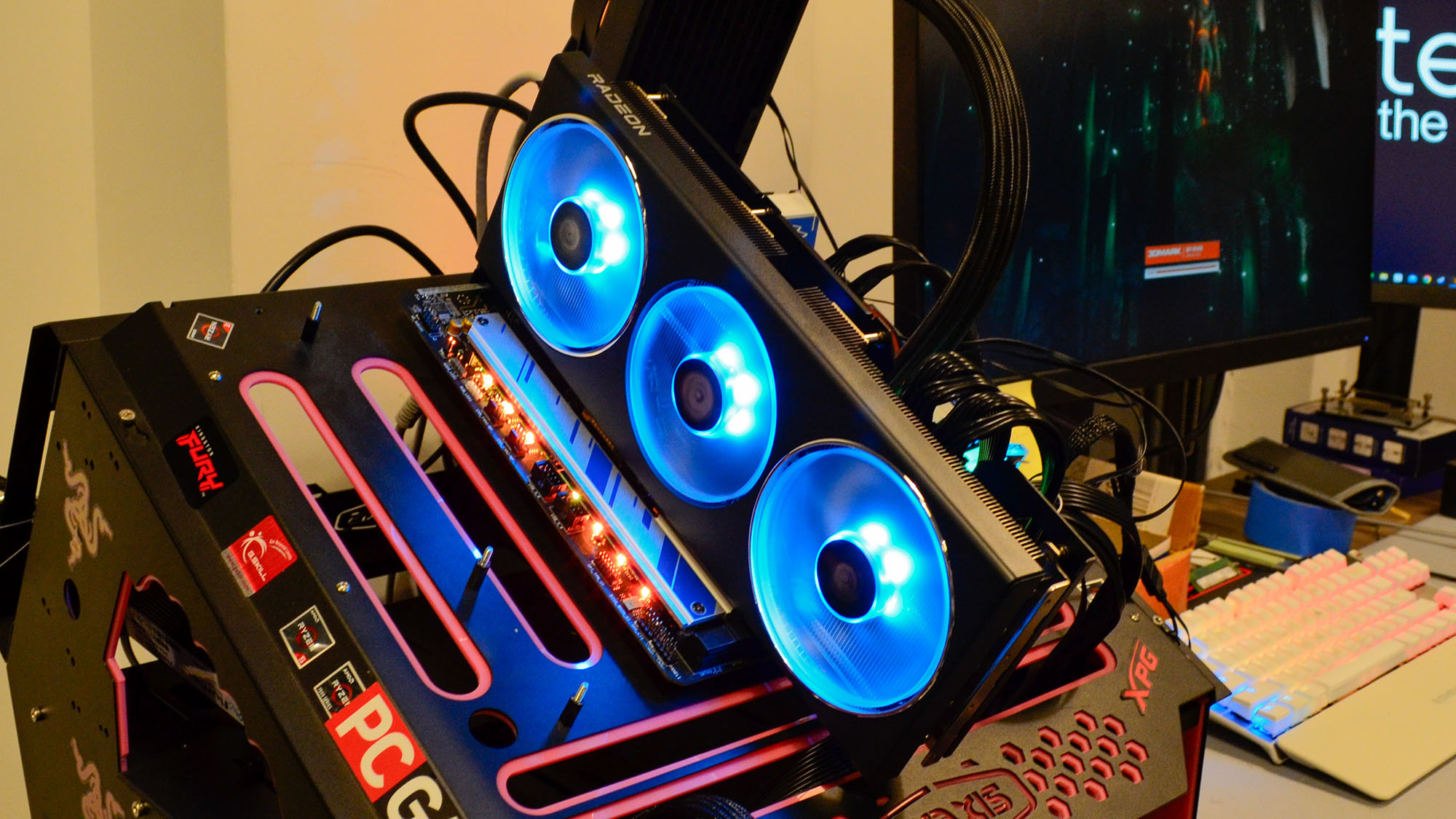AMD’s big moment to challenge Nvidia DLSS could come this year, as exec hints at FSR getting AI
Should Nvidia start to worry?

Sign up for breaking news, reviews, opinion, top tech deals, and more.
You are now subscribed
Your newsletter sign-up was successful
AMD might be set to introduce AI to its FSR upscaling feature in the future, as indicated in an interview with the firm’s CTO Mark Papermaster.
Tom’s Hardware reports that Papermaster was interviewed in the No Priors podcast, where the CTO talked about what AMD was aiming to achieve in 2024, and what the company will be focused on doing.
Papermaster said: “Well, this for us is a huge year because we have spent so many years developing our hardware and software capabilities for AI. We’ve just completed AI-enabling our entire portfolio. So, cloud, edge, PCs, our embedded devices, our gaming devices, we’re enabling our gaming devices to upscale with AI...”
So, the last part of that quote is a direct reference to upscaling being infused with AI, and we can hope that it refers to FSR (though we can’t know for sure – we’ll come back to that).
Notably, AMD hasn’t used artificial intelligence as part of the bag of tricks that makes FSR work, whereas Nvidia has with DLSS (and Intel XeSS does, too).
This isn’t just about gaming, though, as the above comment makes clear – AMD wants to cram AI into everything (and the tech giant isn’t alone in that ambition, it’s becoming a very common theme in the industry, as you can’t have failed to notice).
This is going to be a drive across all computing aspects, and it comes hand-in-hand with AMD pushing NPUs or Neural Processing Units, with an NPU incorporated in Team Red’s latest silicon. (Ryzen 8000 mobile and desktop APUs, which boast XDNA tech on board to rival the NPUs Intel brought in with Meteor Lake laptop chips).
Sign up for breaking news, reviews, opinion, top tech deals, and more.
Analysis: The importance of AI
Of course, an overall major push with AI isn’t a surprise – indeed, it would be a surprise if there wasn’t such an initiative underway, to be honest. What with AI being the juggernaut of a bandwagon that it currently is, and very much set to remain in the future.
But it is good to hear that AMD might be bringing AI to FSR, as even though the tech isn’t directly mentioned by name, that’s the meaning we take from what Papermaster said here. Although in fairness, as Tom’s points out, Papermaster could be referring to upscaling tech tied to its NPUs, we can’t be sure at this point. Not until AMD specifically mentions FSR, which obviously isn’t the case here.
Why is AI important for upscaling tech? Simply because it helps to ensure that the upscaled image is more detailed and of better quality, it’s more akin to running the game at the native resolution (but with a faster frame rate). This is an area AMD has received flak around, in terms of Nvidia DLSS giving superior quality results, and it’s an important aspect to catch up on for Team Red.
The downside to bringing AI into the equation is that you need a way to ensure that this extra trickery doesn’t bog down the performance of your graphics card. That’s where hardware acceleration comes into play, and so if FSR does get an infusion of AI, it’ll need something to drive that – whether that’s an NPU or dedicated GPU cores (like Nvidia’s RTX graphics cards, or RDNA 3’s AI acceleration). That will, of course, entail restrictions regarding who can use the theoretical AI-powered future take on FSR – meaning those with RX 6000 GPUs or older need not apply, for example.
All this is speculation, of course, and we’ll need to wait to hear more from AMD about exactly what its plans for upscaling with AI for gaming devices are. Color us intrigued, for now, as this could be a huge development in the battle with Nvidia DLSS.
You might also like
Darren is a freelancer writing news and features for TechRadar (and occasionally T3) across a broad range of computing topics including CPUs, GPUs, various other hardware, VPNs, antivirus and more. He has written about tech for the best part of three decades, and writes books in his spare time (his debut novel - 'I Know What You Did Last Supper' - was published by Hachette UK in 2013).